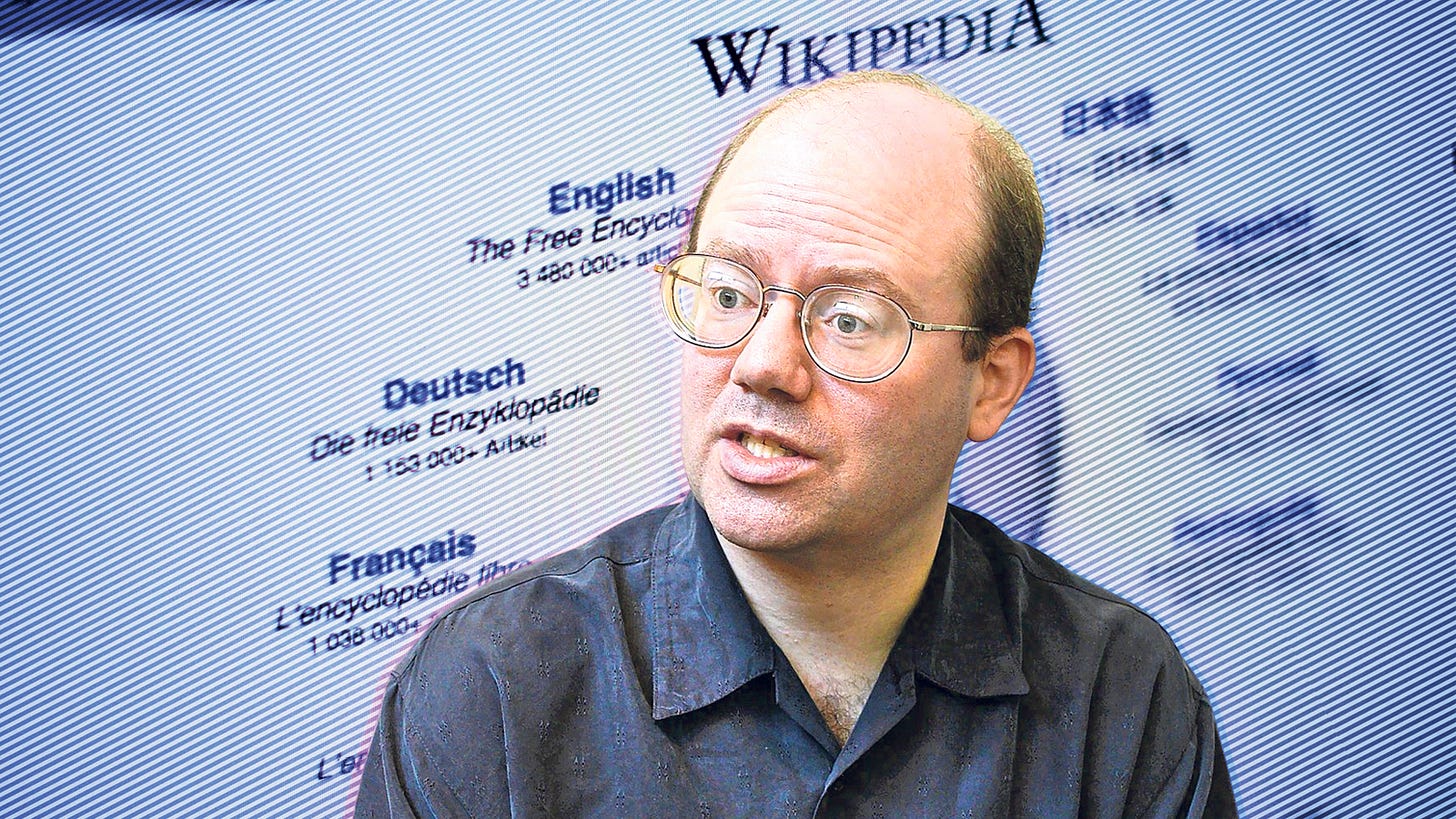The Philosopher's Testimony
On Larry Sanger's road to God
The recent conversion of Wikipedia co-founder Larry Sanger has been sending happy shockwaves through my corner of the Internet. Sanger has written up his testimony into a careful long read that clocks in at about 45 pages when assembled in a PDF. When I say “careful,” I mean this testimony is truly full of care. I didn’t know Sanger’s name at all before this news, but having gone through his story a couple of times, I’m impressed on a few different levels.
First of all, I’m impressed by Sanger’s rigour. I’d like to expect nothing less from an analytic philosopher, although as he laments, the field is increasingly dominated by people who no longer prize the rigorous pursuit of truth. Sanger entered college around the same time my father was entering graduate school. Although my father retained the devout faith of his own childhood, he was much like Sanger in his bullish insistence on asking questions until they were satisfyingly answered. Both of them went on to discover they could be professionally good at asking questions, which you could say is what philosophy is, at its best. Dad actually chose to take it up as a career, while Sanger took his own path (lucky for those of us who use Wikipedia, which, for all its faults and the rank bias that’s crept in against Sanger’s wishes, remains an astonishing knowledge tool). But reading the way Sanger writes was charming for me because it felt so close to home. He speaks my family language. Sort of like you can tell within a few bars whether someone knows his way around an instrument, I can tell quickly when someone is analytically trained.
That sort of training could tempt someone to wield it in an entitled, credentialist way. To Sanger’s great credit, he confesses how his own pride kept him from doing a serious investigation of Christianity. In fact, he admits that for decades, he didn’t even understand what theology was, because (he thought at the time) why should he bother finding out? This arrogance wasn’t peeled away from him all at once, but little by little, layer by layer.
Readers know I’ve been following what some are calling a religious vibe shift in recent years, somewhat agreeing and somewhat disagreeing that the “shift” is all that. One point I’ve consistently made is that it’s important for the discourse to get past the fiction that only a “right-brained” (I hate that shorthand but you know what I mean) Christianity can survive into post-modernity. Wesley Huff’s appearance on Joe Rogan caused such a fuss because Huff represents a “left-brained” approach that atheist apologists want to believe has been killed dead in the court of respectable public opinion. We’re all supposed to just accept that once you actually do the work, overcome confirmation bias, etc., your atheism is assured.
Well, no one can accuse Larry Sanger of not doing the work.
Keep reading with a 7-day free trial
Subscribe to Further Up to keep reading this post and get 7 days of free access to the full post archives.


